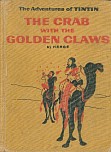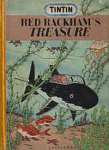| TINTIN LANGUAGES | |
| AFRIKAANS | |
| ALGUERES | |
| ALSATIAN | |
| ARABIC | |
| ASTURIAN | |
| BASQUE | |
| BERNESE | |
| BENGALI | |
| BRETON | |
| BULGARE | |
| CAMBODIAN | |
| CATALAN | |
| CHINESE | |
| CORSICAN | |
| CZECH | |
| DANISH | |
| DUTCH | |
| ENGLISH | |
| ESPERANTO | |
| FARSI | |
| FAEROESE | |
| FINNISH | |
| FRENCH | |
| FRIESIAN | |
| GALICIAN | |
| GALLO | |
| GAUMIAN | |
| GERMAN | |
| GREEK | |
| HEBREW | |
| HUNGARIAN | |
| ICELANDIC | |
| INDONESIAN | |
| ITALIAN | |
| JAPANESE | |
| KOREAN | |
| LATIN | |
| LUXEMBOURGER | |
| MALAYALAM | |
| NORWEGIAN | |
| OCCITAN | |
| PICARDY | |
| POLISH | |
| PORTUGUESE | |
| ROMANSCH | |
| RUSSIAN | |
| SERBO-CROAT | |
| SINHALESE | |
| SLOVAK | |
| SPANISH | |
| SWEDISH | |
| TAHITIAN | |
| TAIWANESE | |
| THAI | |
| TIBETAN | |
| TURKISH | |
| VIETNAMESE | |
| WELSH | |
| TOTAL 60 VERIFIED LANGUAGES | |
| RUMOURS | |
| MIRANDES | |
|
MONEGASCO |
|
| PROVENÇAL | |
| RUANDES | |
| MONEGASCO | |
| LINKS | CRAB MENÚ | CASTAFIORE MENU |
 |
ENGLISH | |||||||||||
|
||||||||||||
The spectacular advance of English across the face of the globe is a phenomenon without parallel in the history of language. Observe a German tourist talking to a Japanese shopkeeper in Tokyo, or an African diplomat to his counterpart from Asia, and the medium of communication will almost certainly be English. Though the French and the Rtissians may sharply disagree, English is already well on its way to becoming the unofficial international language of the world community. |
|
PUBLISHERS Many |
|
ONLINE SHOPING More or less everywhere
|
|
LINKS
|

 AMERICAN
LIBRARY EDITION
AMERICAN
LIBRARY EDITION




 FIRST
ENGLISH EDITION
CASTERMAN 1952
FIRST
ENGLISH EDITION
CASTERMAN 1952
|
|
I'VE GOT THIS ONE | ! WANTED! |